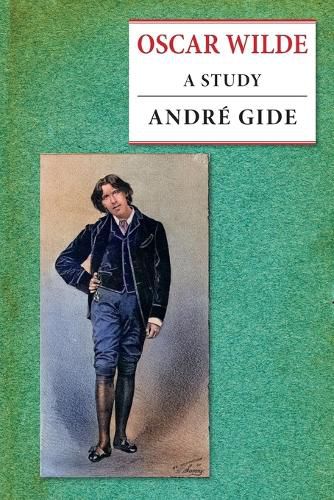Readings Newsletter
Become a Readings Member to make your shopping experience even easier.
Sign in or sign up for free!
You’re not far away from qualifying for FREE standard shipping within Australia
You’ve qualified for FREE standard shipping within Australia
The cart is loading…






'I have put all my genius into my life; I have put only my talent into my works.'-Oscar Wilde.
Andre Gide first met Wilde in Paris when Wilde had fled Britain following his release from Reading gaol. This short book was first published in English in 1905 and was written shortly after Oscar Wilde's death in 1900.
Through personal recollections, Gide states that he set out to show Wilde as an object of admiration and then demonstrate how his work was illuminated by his personality.
Andre Gide (1869-1951) was the winner of the Nobel Prize for Literature in 1948. His works included many books of fiction as well as autobiographies. He was sexually attracted to boys, describing himself as a pederast. In his Si le Grain Ne Meurt (1924), Gide claims that in 1895 Wilde had 'inveigled him [Gide] into debauchery' with a young Arab boy in Algiers: this was not the case as Gide had already 'discovered his homosexuality' some years earlier.
Stuart Mason (the nom de plume of Christopher Sclater Millard, 1872-1927) translated the book from the original French magazine article and added an introduction, notes and a bibliography. It was Mason's bibliography, listing all of Wilde's works that helped Wilde's literary executor, Robbie Ross, establish copyright on his works. Millard, like Wilde, was imprisoned for his homosexuality.
The book includes the five images from the original publication; three of which are of Oscar Wilde.
$9.00 standard shipping within Australia
FREE standard shipping within Australia for orders over $100.00
Express & International shipping calculated at checkout
'I have put all my genius into my life; I have put only my talent into my works.'-Oscar Wilde.
Andre Gide first met Wilde in Paris when Wilde had fled Britain following his release from Reading gaol. This short book was first published in English in 1905 and was written shortly after Oscar Wilde's death in 1900.
Through personal recollections, Gide states that he set out to show Wilde as an object of admiration and then demonstrate how his work was illuminated by his personality.
Andre Gide (1869-1951) was the winner of the Nobel Prize for Literature in 1948. His works included many books of fiction as well as autobiographies. He was sexually attracted to boys, describing himself as a pederast. In his Si le Grain Ne Meurt (1924), Gide claims that in 1895 Wilde had 'inveigled him [Gide] into debauchery' with a young Arab boy in Algiers: this was not the case as Gide had already 'discovered his homosexuality' some years earlier.
Stuart Mason (the nom de plume of Christopher Sclater Millard, 1872-1927) translated the book from the original French magazine article and added an introduction, notes and a bibliography. It was Mason's bibliography, listing all of Wilde's works that helped Wilde's literary executor, Robbie Ross, establish copyright on his works. Millard, like Wilde, was imprisoned for his homosexuality.
The book includes the five images from the original publication; three of which are of Oscar Wilde.